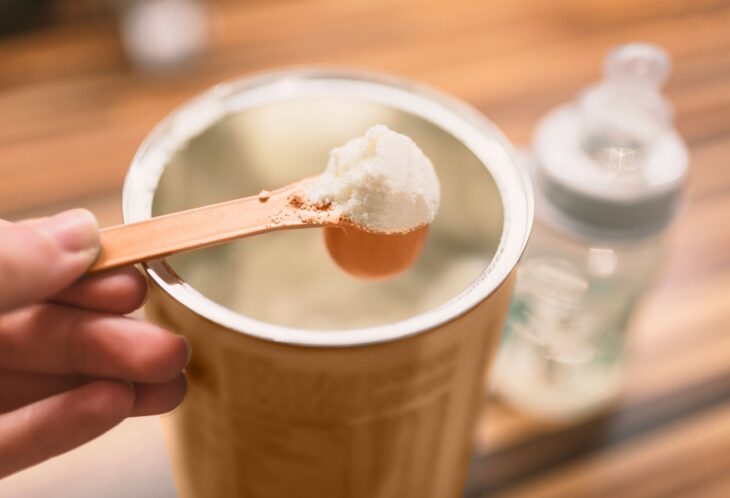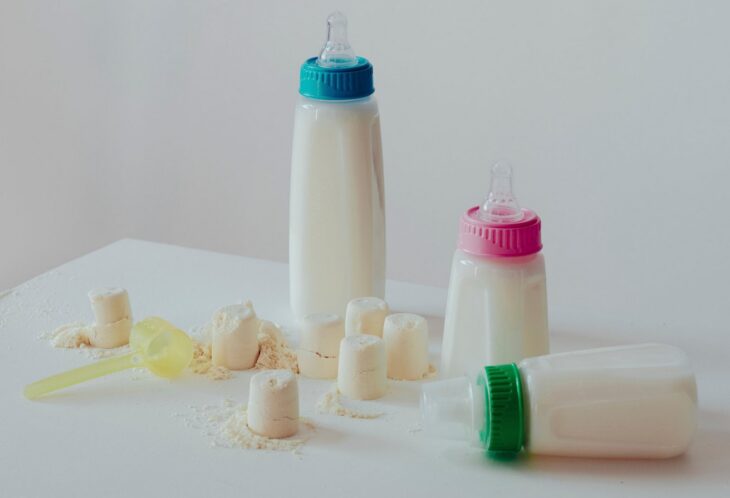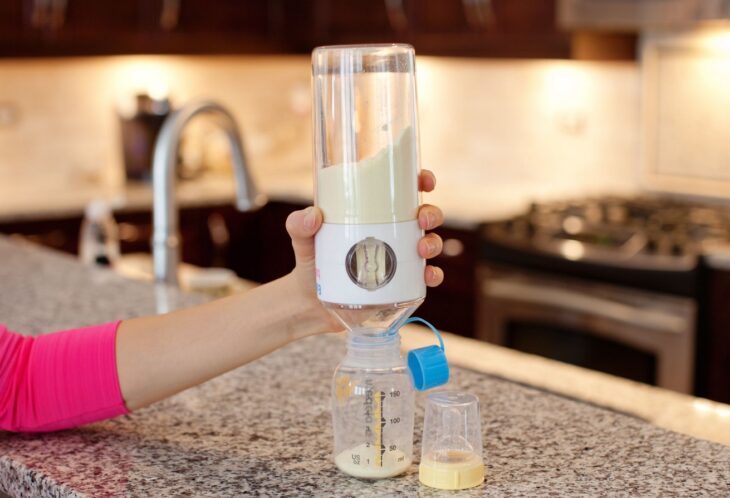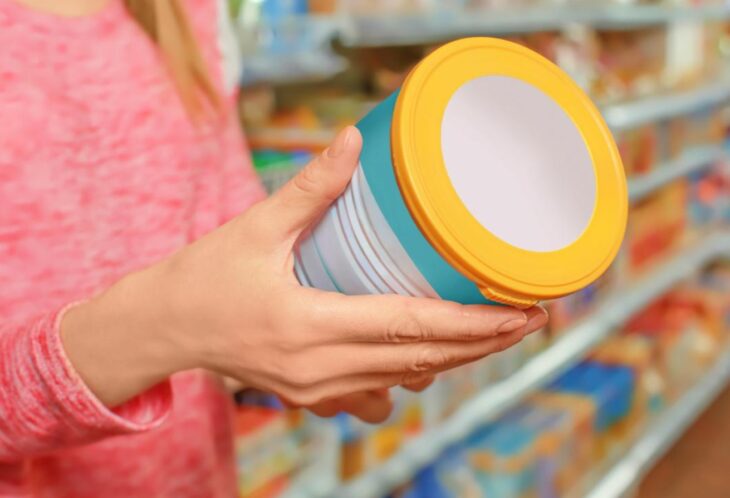Choosing the right baby formula for your little one is a crucial decision for any parent. Whether you’re opting to give your baby formula in place of breastfeeding or using formula to supplement your breastfeeding to give yourself a bit of a break, picking the right formula plays a huge role in your baby’s development.
Whilst it might seem like a relatively simple process, and just a case of choosing between brands and the right aged product for your child, the reality is that there’s a lot of factors to consider. From the preservatives used in the products, to your baby’s own unique needs, picking the right formula takes time and knowledge. Depending on your child’s needs, they may need hypoallergenic formula which can be found on websites like this one, or even a plant-based product if they have any intolerances. We’ve put together all of the different factors that come into play when it comes to choosing the best formula for your baby to help you make the right choice for them.

Source: NCT
Contents
Is breast really best?
There’s a lot of discourse in the parenting world about the age-old statement “breast is best”. Many people and organizations state that the best option for a baby is always to have breast milk from the mother, but this is a huge generalization that can leave many women feeling obliged to breastfeed, and that not breastfeeding is a sign of a bad mother.
Of course, we understand that the reality of the situation is much more complex. There are a variety of reasons why breast isn’t always best for mothers and babies alike.
You may not be able to breastfeed
Every person is unique, with their own needs and abilities, and the reality is that not everyone is able to breastfeed their child. Whether it is too painful, you cannot produce milk or need to be on medication which interferes with your ability to breastfeed, for some new mothers breastfeeding isn’t feasible.
Your child may have specific needs
If your baby has been born prematurely or has certain allergies or intolerances, then breastfeeding simply may not be possible, and baby formula may be the best way for them to get all the nutrients they need.

Source: Healthline
What to consider when choosing a baby formula
Whatever your reasons are for choosing to give your baby formula, making the decision of what formula to give them is the biggest challenge. There are a range of factors to consider that will help you to work out which is the best formula for your child, from their needs, to your lifestyle and how you are using baby formula in your child’s diet.
How much of your baby’s diet will be formula
Firstly, you should decide how much of your baby’s diet will be made up of formula. This will help you when considering the costs and logistics of your baby’s diet.
The formula can be used in a flexible way to support breastfeeding or completely substitute it, or even as a way to help wean your child off of breast milk.
How much can you afford to spend on formula
Money is an inevitable factor to consider when it comes to childcare, and if you are replacing breast milk with baby formula, then it will be a hefty cost. Depending on your financial situation, it may be the case that you cannot afford pricier formulas. These tend to be organic or hypoallergenic baby formulas.

Source: The New York Times
Whether your child has any intolerances or allergies
Your baby could have any number of intolerances or allergies, so it’s important to check the ingredient lists of formulas before buying them to see if your child is allergic to any of the ingredients. Since a lot of formulas are based on cow’s milk, if your baby is lactose intolerant then this will directly affect which formula you can choose. In this case, a hypoallergenic or plant-based formula would be the best option.
What type of formula you want to give your child
Baby formula comes in a variety of formats, from powder to ready-mixed. Depending on your lifestyle, you may prefer one format over the others. For example, if you are out and about a lot, then ready to drink formula may be the best option, or if you are able to mix the formula yourself, you can get a powdered or concentrated formula. We’ll go into a little more detail below about the different types of formula you have to choose from.
Considering these things will help you to make the decision that is right for you and your baby.
Types of formula
Each type of baby formula has its own advantages and disadvantages, and having a variety of choices means you can make sure that your choice of formula is the best for you and baby.

Source: Brif.rs
Powder formula
This is the most commonly used formula, and usually comes in large tubs that are great for keeping at home. Powdered formula does require the caregiver to mix the formula first, and needs a supply of clean water to be ready for consumption.
Liquid concentrate formula
This type of formula comes in a liquid form that needs diluting before being ready to drink and again takes a little more time. It is also more quickly perishable than powdered formula, which can keep for a while.
Ready to feed formula
This is the most convenient formula type, but also the most expensive. It also needs to be consumed within 48 hours of opening, so could cause some waste. However, it is great for on-the-go parents and for taking out with you on a day trip.

Source: MommaBe
You have to do what is best for you and your family
Overall, it’s crucial to remember that despite all the advice you can get and blogs you can read, ultimately you need to put yourself and your child first when thinking about how you feed them. Just because some people use formula, the best option for you may be breastfeeding, and vice versa. The bottom line is that it needs to work for you. The reality is that there is no one size fits all way to feed your child, and everyone has different needs, circumstances and capabilities. As a parent, it’s your job to work out what is the best choice for your family.
